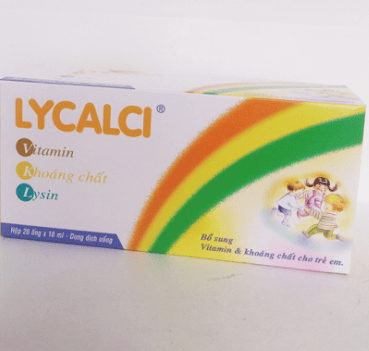This is an automatically translated article.
Constipation is a common digestive disorder, up to 10% of children are constipated and 1/3 of them need the intervention of a doctor. Constipation is a problem that affects the quality of life and can affect the health and development of the baby. Some children have severe constipation that can make them afraid to eat. So how to treat constipation in children?
1. Identify children with severe constipation
The number of bowel movements a day and the nature of stools of each child will vary depending on age and daily nutrition. From the 3rd month of age, children have a habit of having a bowel movement 1-2 times a day and gradually decrease the number of times with age. However, a small number of children only have bowel movements about 3 times a week, despite being nourished with a scientific diet and their overall health is still completely normal.
Therefore, a child is constipated when the number of bowel movements is less than normal or less than 3 times a week, and the baby's stools are hard, firm, making it difficult or painful to have a bowel movement. Some symptoms of constipation in young children are as follows:
The stools are usually firmer than usual; Children find it difficult to have a bowel movement, sometimes causing pain and making them fussy and afraid to defecate. This condition inadvertently forms a vicious cycle that contributes to the worsening of constipation; Children with severe and prolonged constipation can lead to other abnormalities such as frequent urination, bed-wetting, fatigue, abdominal pain, nausea, fear of eating, anorexia, growth retardation or malnutrition.
2. Children with severe constipation are often afraid to eat
Difficulty in defecation in children with severe constipation will affect their psychology, because every time they eat, they are afraid of having to defecate. This long-term condition makes many children afraid to eat or become obsessed with eating.
Besides, some children can eat and drink normally, but because of constipation, it leads to accumulation of waste products and causes a feeling of fullness and bloating. The combination of the two factors above will make children afraid to eat and this can happen in adults as well.

Trẻ bị táo bón nặng thường rất sợ ăn
3. Causes of severe constipation in children
Some causes of severe constipation in children :
Not being nourished with breast milk : Breast milk has always been evaluated as the most suitable source of nutrition for infants' digestive system and children. Breast milk contains a hormone called motilin with the ability to increase intestinal motility, promoting stool to move through the intestinal tract more easily. In contrast, formula-fed babies often have a harder time digesting, and their intestines absorb more water. This condition causes stools to be dry, lack flexibility and difficult to move to pass out. Therefore, breastfed babies often have less constipation than formula-fed babies; Insufficient fiber intake: Fiber has the ability to increase water retention in the large intestine and aid in better digestion of food. Children who supplement with too much protein, low in fiber, or whose diet is unscientific, not enough of the recommended nutrient groups increases the risk of children suffering from severe and prolonged constipation. Not providing enough water: Children with severe constipation often have a habit of drinking less water or because parents do not give them the necessary amount of water, especially those who often run, play, and be active. In addition, some children have a preference for consuming carbonated soft drinks, soda, and caffeinated beverages, making them urinate more, leading to a lack of water in the body and consequent constipation; Not having the habit of going to the toilet on time: Some reasons for this are that parents do not teach their children the habit of defecation at a certain time of the day, playful children should hold back their bowels or go to class. afraid of being scolded by the teacher, not daring to ask to defecate, but waiting to go home before going... The above conditions lead to children losing feeling or not having a bowel reflex and leading to constipation; Abuse of drugs: Children are often sick, rickets, malnutrition, acute respiratory infections... often have to use many different drugs, especially antibiotics, which will contribute to digestive disorders. , including constipation; In addition, the cause is also due to surgical or gastrointestinal diseases: These are the causes that can lead to severe constipation in children that parents need to pay attention to. Common diseases include congenital malformations of the gastrointestinal tract (such as colonic enlargement, intestinal stenosis), anal stenosis, anal fissure...
4. Treatment of constipation for children at home
Effective home remedies for constipation in children include:
An important issue is that parents need to be very patient to encourage and reassure their children every time they have a bowel movement. At the same time, parents need to try to create conditions for the baby to be more comfortable when having a bowel movement such as keeping the toilet ventilated and clean, choosing a potty / toilet of the right size or can let the child soak in warm water before going to the bathroom. convenient about 5-10 minutes. In order to avoid children's fear of eating due to constipation, parents need to adjust their nutrition and milk regimens to the age of their children. For children 6 months and older, besides milk, the mother can give the child laxative juices such as oranges, pears, apples, plums, etc. Encourage children to drink plenty of water and limit their use. carbonated soft drinks or foods that are too sweet. The daily diet needs to add more fiber, such as puree and add green vegetables to the flour or porridge.

Khuyến khích trẻ uống nhiều nước giúp điều trị táo bón cho trẻ tại nhà
5. Constipation prevention measures for children
Encourage mothers to exclusively breastfeed their babies for at least the first 6 months of life. Mothers should breastfeed their babies as much as possible, because breast milk is the best source of nutrition for babies and children. Breastfeeding is an extremely effective and easy way to prevent constipation.
For babies who are required to use formula milk, mothers should pay attention to how to properly mix milk according to the manufacturer's instructions. At the same time, it is necessary to absolutely ensure the hygiene of the bottle to prevent gastrointestinal diseases, to add the necessary amount of water to support the digestive system to work more smoothly.
For older children entering the weaning period, parents should feed them properly according to the recommendations of the World Health Organization (WHO). In which, note the issue of supplementing the necessary amount of fiber from fresh fruits, especially plums, apples, pears... Besides, parents should increase their dietary intake of vegetables. Dark greens (such as spinach, amaranth, jute, spinach), because this is a very rich source of fiber.
Encourage children to exercise regularly, appropriate for their age. Parents can massage the baby's abdomen to help increase bowel movements and stimulate food digestion.
Creating a habit of going out on time, a comfortable atmosphere when going to the toilet helps to eliminate the psychological obsession of "fear of having a bowel movement" which will help improve the situation of children with severe constipation effectively.
One thing parents need to pay special attention to is that if the child has severe constipation often (for more than 3 days without bowel movements and has difficulty in defecation, the child cries a lot), it is necessary to take the child to see a doctor for diagnosis and treatment. suitable treatment. At the same time, parents need to closely monitor their child's bowel movements, so that they can take timely and effective interventions to avoid serious effects on the child's health, helping the treatment to be most effective. .
Vinmec International General Hospital is one of the leading hospitals in the country for examination, diagnosis and treatment of digestive diseases, especially in infants and young children. With modern equipment, sterile space, minimizing the impact as well as the risk of disease spread. Along with that is the dedication from the doctors with professional experience with pediatric patients, making the examination no longer a concern of the parents.
Please dial HOTLINE for more information or register for an appointment HERE. Download MyVinmec app to make appointments faster and to manage your bookings easily.













